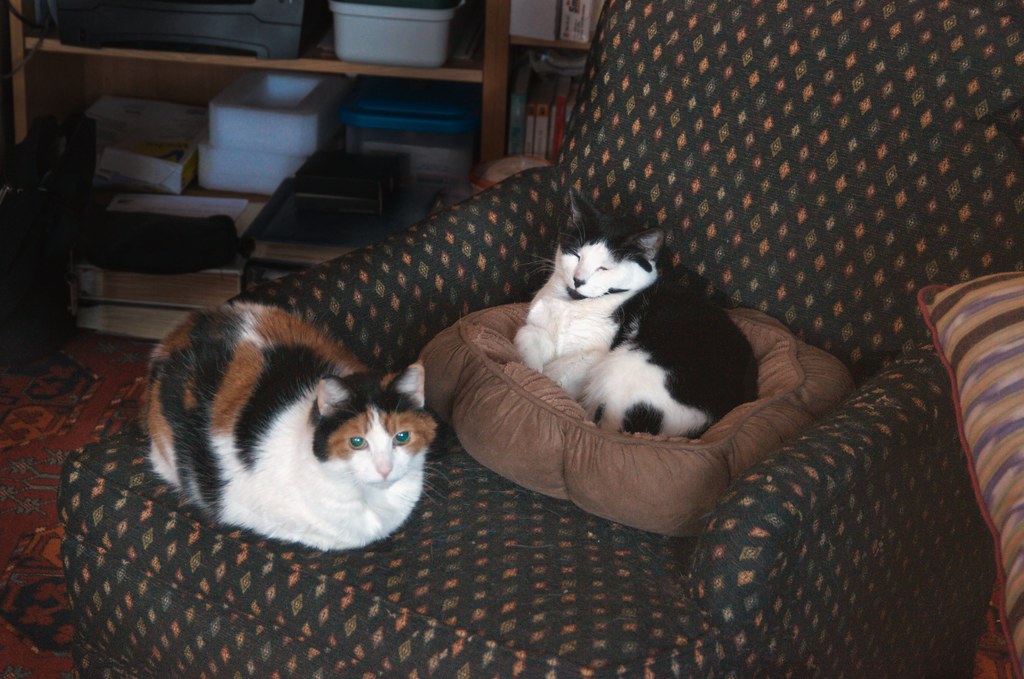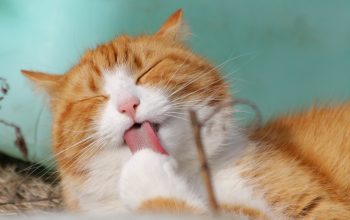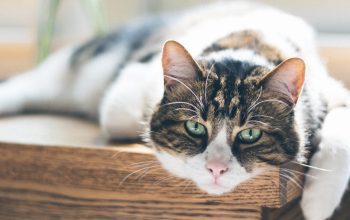How can senior cats benefit from proper care to ensure they age gracefully and maintain serenity?
As our beloved feline friends age, it becomes crucial for us to provide them with the proper care and attention they need to enjoy their golden years. Just like humans, cats experience physical and cognitive changes as they grow older. To ensure their well-being and maintain their overall happiness, a few adjustments to their environment, diet, and healthcare routine can make a significant difference.
1. Environmental Adaptations
Providing a suitable environment for senior cats is vital for their comfort and safety. Consider these tips:
-
- Soft and warm spots: Ensure your senior cat has soft beds or blankets in quiet areas to rest in. Older cats often prefer warmer environments, so consider providing heated beds to keep them cozy.
-
- Easy access: Set up ramps or steps to help your senior cat reach favorite spots like beds or sofas without struggling or injuring themselves.
-
- Litter box accessibility: If your cat has arthritis or mobility issues, ensure the litter box is easily accessible. Use a box with low sides, preferably on the ground floor, to make it easier for them to use it comfortably.
-
- Reduced stress: Avoid significant changes to your cat’s routine or environment as they can cause stress. Keep loud noises, crowds, or other disruptive factors to a minimum.
2. Diet and Nutrition
A well-balanced diet tailored to your senior cat’s needs can contribute to their vitality and overall health:
-
- Senior-specific food: Consult your veterinarian to determine the right diet for your senior cat. Specialized senior cat food typically contains lower calories and higher levels of nutrients such as omega-3 fatty acids and antioxidants.
-
- Maintain hydration: Ensure your senior cat always has plenty of fresh water available. Dehydration is a common issue among older cats, so consider wetting their food slightly to encourage water intake.
-
- Follow feeding guidelines: Pay attention to portion control and avoid overfeeding, as excess weight gain can lead to various health issues. Consult your vet about the appropriate amount of food for your cat’s age and activity level.
3. Veterinary Care
Regular veterinary check-ups are essential for identifying and addressing age-related health problems early on. Ensure you:
-
- Schedule check-ups: Visit your veterinarian at least annually or as recommended based on your cat’s specific needs.
-
- Preventive care: Vaccinations, dental care, and parasite prevention are crucial even for older cats. Regular dental check-ups and professional cleanings can help maintain their oral health.
-
- Symptom observation: Look out for any changes in behavior, appetite, or litter box habits. Early detection of health issues allows for prompt treatment.
-
- Pain management: Some senior cats may experience chronic pain due to conditions such as arthritis. Consult your vet about appropriate pain management options to ensure their comfort.
Caring for a senior cat requires empathy, patience, and understanding. By making their environment comfortable, providing a tailored diet, and ensuring routine medical attention, you can ensure your senior feline companion enjoys a serene and comfortable life throughout their golden years.
For many, cats provide us with joy and companionship during their entire lifetime. Senior cats, in particular, make wonderful lifelong friends as they share in our lives for many years. Senior cats, like all cats, need a lot of love and care, but with the right health plan, they can enjoy their golden years gracefully and comfortably.
Serenity is a senior cat living with her family for the past 8 years. She’s a perfect reminder of how much love senior cats can bring to their families, despite age and health issues. Her owner, John, says the key to her longevity has been proper care, from getting regular check-ups with her veterinarian to watching her diet to ensuring she has plenty of playtime.
Good health begins with regular check-ups during senior years. As cats age, their risk for diseases such as kidney disease, diabetes, and hyperthyroidism increases, so regular annual visits to the vet are essential. Discussing health concerns with the veterinarian, as well as having the cat’s dental health checked, can help to keep Serenity healthy and comfortable.
Nutrition is particularly important as cats age. Foods tailored to senior cats with plenty of nutrients can help to keep them feeling their best. Water is also a basic element of good health, so Serenity’s family makes sure she has access to fresh water at all times.
Exercise helps Serenity stay active and engaged. She loves to play and chase her toy mouse, but takes regular naps during the day. To ensure she maintains a healthy balance of exercise and rest, Serenity’s family makes sure to give her plenty of attention and playtime.
Living with a senior cat, like Serenity, is a wonderful experience. Cats possess the ability to bring joy and companionship to their families throughout their lifetime, and proper care can help to ensure that senior cats age gracefully.





